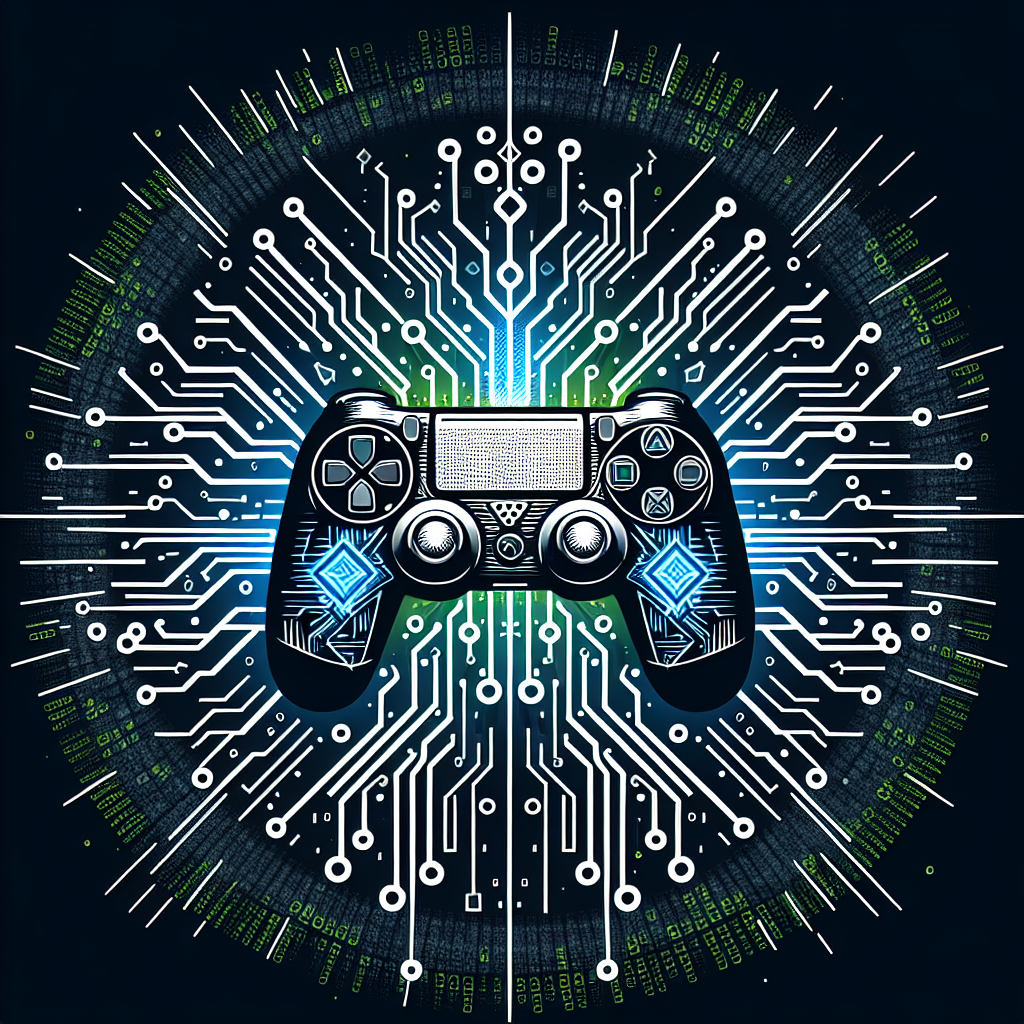In recent years, artificial intelligence (AI) has become an increasingly important tool in the world of game design. From creating more realistic and challenging opponents to providing personalized gaming experiences, AI has had a significant impact on the way games are developed and played. In this article, we will explore the various ways in which AI is influencing game design and the future of the gaming industry.
One of the most obvious ways in which AI is impacting game design is in the creation of more intelligent and realistic non-player characters (NPCs). In the past, NPCs were often limited to simple scripts that dictated their behavior and interactions with the player. However, with the advent of AI technology, developers are now able to create NPCs that can learn and adapt to the player’s actions in real-time.
This has led to a more dynamic and immersive gaming experience, with NPCs that can exhibit a wide range of behaviors and responses. For example, in a first-person shooter game, AI-controlled opponents can analyze the player’s movements and adjust their tactics accordingly, making for a more challenging and engaging gameplay experience.
AI is also being used to create more realistic environments in games. By analyzing player data and behavior, developers can use AI algorithms to generate procedurally generated content that is tailored to the player’s preferences and playing style. This can include everything from dynamically adjusting the difficulty level of a game to creating unique missions and quests based on the player’s actions.
Another way in which AI is impacting game design is through the use of machine learning algorithms to improve game mechanics and balance. By analyzing vast amounts of gameplay data, developers can identify patterns and trends that can help them optimize game mechanics and create more balanced gameplay experiences.
For example, in a multiplayer game, AI algorithms can be used to analyze player behavior and identify overpowered weapons or abilities that may be negatively impacting the game’s balance. Developers can then use this information to make adjustments to the game’s mechanics, ensuring a more fair and enjoyable experience for all players.
AI is also being used to enhance the storytelling and narrative aspects of games. By analyzing player choices and interactions, developers can create branching storylines and multiple endings that are tailored to the player’s decisions. This can lead to a more personalized and immersive narrative experience, with players feeling like they have a real impact on the game world and its characters.
Overall, AI is revolutionizing the way games are designed and played, leading to more intelligent NPCs, dynamic environments, balanced gameplay, and personalized storytelling. As AI technology continues to advance, we can expect to see even more innovation in game design, with games that are more engaging, immersive, and responsive to the player’s actions.
FAQs:
Q: How is AI used in game design?
A: AI is used in game design in a variety of ways, including creating more intelligent NPCs, generating procedurally generated content, optimizing game mechanics and balance, and enhancing storytelling and narrative elements.
Q: What are some examples of games that use AI in their design?
A: Some examples of games that use AI in their design include “The Last of Us Part II,” which features advanced AI-controlled enemies that can adapt to the player’s actions, and “No Man’s Sky,” which uses AI algorithms to generate procedurally generated planets and creatures.
Q: How does AI impact the player experience in games?
A: AI can impact the player experience in games by creating more challenging and realistic opponents, generating dynamic and personalized content, optimizing game mechanics and balance, and enhancing the storytelling and narrative elements of the game.
Q: What are the future implications of AI in game design?
A: The future implications of AI in game design are vast, with the potential for more intelligent and adaptive NPCs, procedurally generated content that is tailored to the player’s preferences, and personalized storytelling experiences. As AI technology continues to advance, we can expect to see even more innovation in game design and a more immersive and engaging gaming experience for players.

